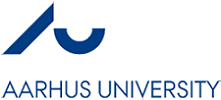Cognitive Science

On the cognitive science programme, you are introduced to the fundamentals of theories of cognition. You learn how to design and carry out your own studies of the mind, the brain and human behaviour.
Studying on the cognitive science programme
Courses consists of both lectures and classroom instruction, where you participate in discussions, make presentations and work with your study group. You also work with practical lab work learning to analyse data from brain scans, behavioural experiments and large text databases. The programme also introduces you to experimental design and statistics, cognitive neuroscience, consciousness as well as cognitive approaches to communication and culture. The degree programme will be conducted in English in order to promoting an international study environment and prepare students for the international labour market.
Do you want to understand the human brain?
In the course of your studies, you learn about the fundamental cognitive processes that underlie our conscious and unconscious perceptions and actions. You learn about how humans make decisions, and how we use language to communicate, share feelings and interact with others. This requires knowledge of the relevant scientific theories as well as specific practical tools. You will thus learn computer programming (e.g. Python) and advanced tools for statistical analysis (e.g. R and MatLab) which you will use in your own experimental investigations of human cognition and behavior.
Wypis godzin oraz ocen – bardzo ważne jest załączenie wypisu. Szczegółowe informacje na temat sposobu wypełniania tego dokumentu oraz termin jego przesłania znajdziesz tutaj.*
Świadectwo dojrzałości wraz ze świadectwem ukończenia liceum - jeśli posiadasz już te dokumenty, koniecznie załącz je do swojego formularza aplikacyjnego Kastu. Jeśli jesteś w ostatniej klasie szkoly średniej, doślesz je wtedy, kiedy je otrzymasz.
Uwaga:
- na tę uczelnię należy wysłać wszystkie niezbędne dokumenty do 5 lipca, natomiast polscy aplikanci, kończący szkołę w tym roku, otrzymają matury po tym terminie. Istnieje szansa, że Aarhus University poczeka na dosłanie matur do 8 lipca, natomiast szansa ta wynosi 50% i nie będzie możliwości wcześniej zweryfikować, czy w tym roku będzie taka opcja. Aplikacja może więc być ryzykowna, bo istnieje realna szansa, że uczelnia nie przyjmie matur. Aplikować można więc na własną odpowiedzialność.
Sytuacja ta nie dotyczy absolwentów, którzy w momencie składania aplikacji powinni mieć już maturę i Świadectwo Ukończenia.
Osoby zdające IB (International Baccalaureate) otrzymują dyplom wcześniej, nie powinny więc mieć problemu, by dokumenty były wysłane na czas.
Spełnienie wymagań w zakresie języka angielskiego można udokumentować w jeden z następujących sposobów:
IELTS – 6.5
TOEFL – 83 (Aarhus University TOEFL kod - 8935)
Uwaga: wymagania językowe mogą ulec zmianie. Przed wysłaniem aplikacji upewnij się jakie są wymagania językowe na konkretny kierunek bezpośrednio na stronie uczelni.
W przypadku zdawania certyfikatu IELTs upewnij się, czy uczelnia oprócz wymagań oceny końcowej nie ma również wymagań odnośnie ocen cząstkowych.
- Matematyka. Całkowity czas nauki matematyki w szkole średniej powinien wynosić co najmniej 250 godzin* (zegarowych).
- Historia. Całkowity czas nauki historii w szkole średniej powinien wynosić co najmniej 150 godzin* (zegarowych).
*Uwaga: podaną liczbę wymaganych godzin nauki należy traktować orientacyjnie. Zazwyczaj spełnienie tych wymagań godzinowych powinno być wystarczające, jednak w niektórych przypadkach może być to za mało, aby spełnić wymagania odnośnie znajomości konkretnego przedmiotu.
Dlatego też wymagania godzinowe powinny być traktowane jako orientacyjne, a ostateczna decyzja odnośnie poziomu znajomości danego przedmiotu przez aplikanta podejmowana jest przez Aarhus University.
Your career opportunities as graduate of the BA programme depend on what supplementary subjects you take as well as what Master’s degree programme you choose later on.
The broad, interdisciplinary nature of the programme along with its focus on concrete data collection and analysis skills means that graduates of the programme are interesting to prospective employers from a variety of sectors, including IT, product design, neuroscience research and management.
As a graduate of the Bachelor’s degree programme in cognitive science, you understand how the brain works, which gives you a unique understanding of how human beings interpret and relate to objects in their world, how they are affected by social situations and how they make decisions. This can prepare you for a career in design or the analysis of consumer behaviour and markets. As a cognitive scientist, you also understand how data systems work, and you acquire concrete skills in computer programming which qualify you to work with information technology. On the cognitive science programme, you also learn to design experiments and process large data sets. This gives you skills in advanced data analysis and modelling, which can prepare you for jobs in research consulting, communication and evaluation.

